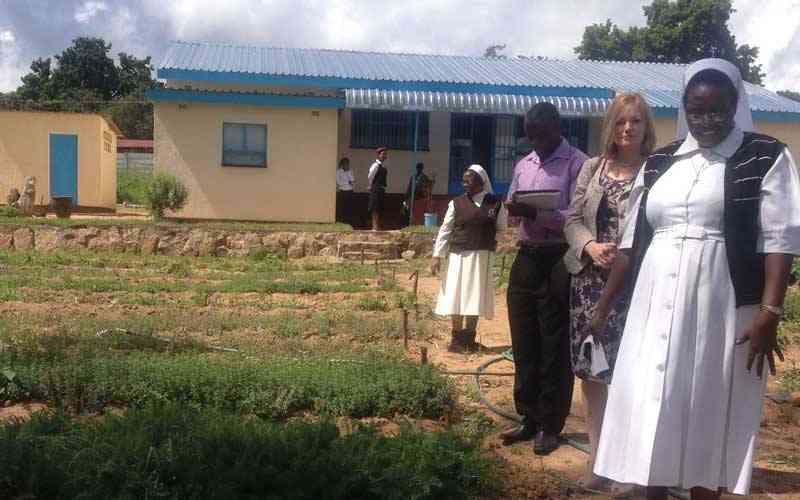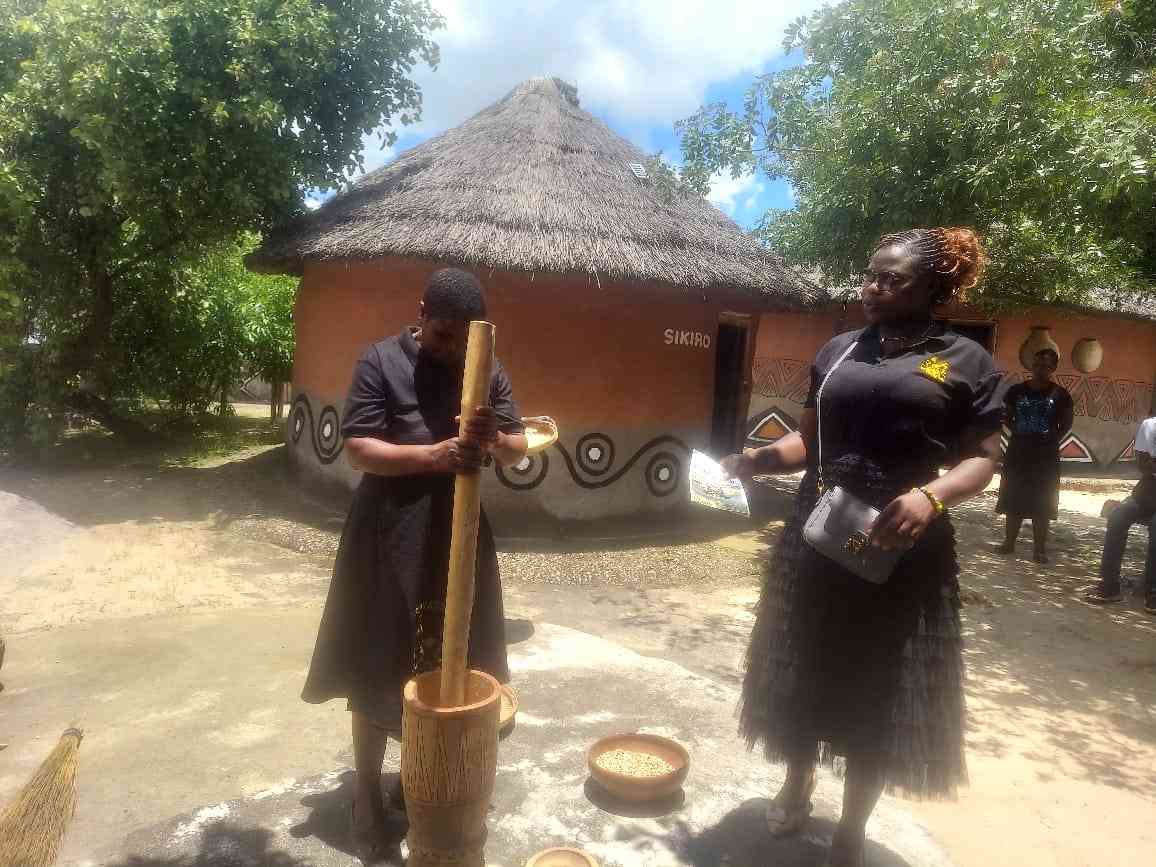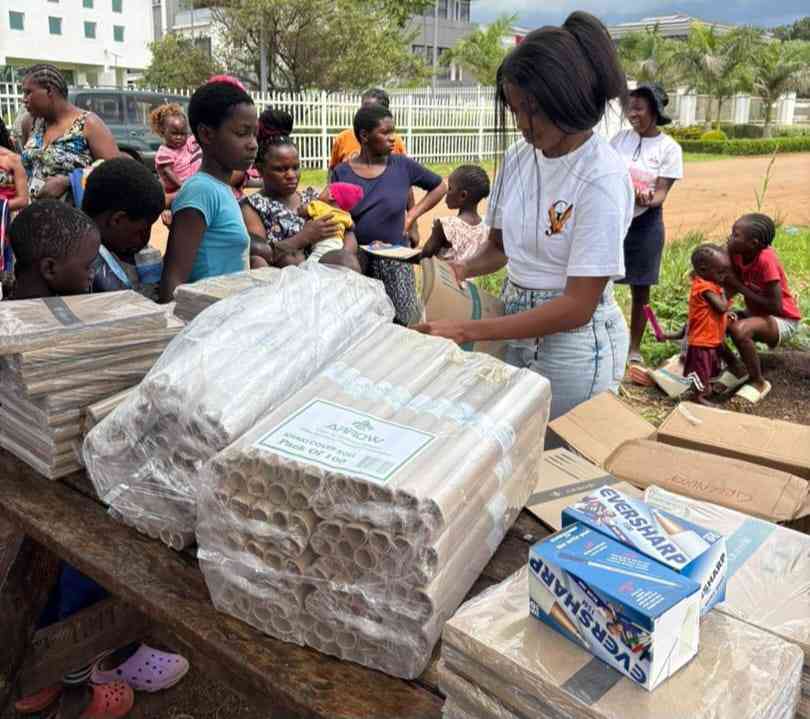
Situated at the Harare Exhibition Park, standing humbly among the affluent contemporary health facilities in Zimbabwe, Blessed Hands Herbal Organisation of the Little Children of our Blessed Lady (LCBL) Sisters of the Roman Catholic Church, has opened a herbal medical academy.
The academy is the first of its kind in Zimbabwe with high hopes of complementing the work being done by the ministries of health and education and other health players. LCBL deals with herbal therapy, massages, consultations, reflexology treatments and training among other things.
The objective of opening the herbal academy was to train and educate people on herbal processes such as growing, managing, harvesting, processing and administering herbal medicine.
The other major objective is for people to understand and appreciate the effectiveness of herbal medicine as it has colossal profits and good nutrition.
Sharing and distribution of information through programmes such as TOTs (training of trainers) of herbal medicine so that people own the medicine is of paramount importance. There is also some stigma that follows herbal medicine practitioners.
The academy offers a six-month national foundation certificate programme with basic training and an intensive one year national programme. Those who are trained become assistant herbalists and are able to grow, process and administer herbal medicine. The trained practitioners are then registered with TMPC (Traditional medical practitioners), Health and Education ministries.
Zinatha president George Kandiero applauded LCBL for the 20 years they have been soldiering on despite the stigma associated with the use of traditional herbs.
“Natural and herbal medicines are experiencing a renaissance in Zimbabwe. They have always been the heart and soul of most African people and to be precise the Shona people of Zimbabwe," said Kandiero. "It is lack of knowledge to shun herbal medicine, therefore, we implore everyone to come on board to join and amplify what has been done by sister Yullita Chirawu and sister Fortunate Ruchike. In the same vein we will continue lobbying for land to be given to those who grow herbs.”
- The reincarnation of ATR in apostolic sect churches.What is going on?
- Cultural panorama: Social implications of paternity tests
- Are sangomas really ‘linked’ to armed robberies?
- When culture and public health go separate ways
Keep Reading
Sister Chirawu holds a Diploma in Herbal Medicine from the UK Institute of Natural Healing and has written a book entitled Common herbs and their uses.
The fact that most of the medicine is found within the African community makes it very striking and welcoming. It is also cost effective.
The continued decline in limited access to medicines in government and private hospitals since the year 2000 has led the visionary Sister Chirawu to continue dreaming big. To sister Chirawu, her dreams of establishing a herbal academy have come true.
She started with a herbal garden, dreamt of a herbal clinic and pharmacy which are now in place and now the herbal school which started on the first of August 2023. She continues to pray that by 2030 there will be health for all.
Timothy Njekete, TMPC vice chairperson in charge of research, education and training, applauded Blessed Hands Herbal Organisation for tremendous achievements in herbal medicine.
“Sister Yulita is doing well under this program and nothing will stop her. She has embraced the program offered by TMPC and we are inviting anyone who is capable to implement TMPC programmes. "We will, therefore, assist them through monitoring, evaluation and inspection so that the program is successful, “said Njekete
Today, traditional medicine continues to provide solutions to health needs of poor people who cannot afford expensive drugs prescribed in clinics, hospitals and private health facilities.
From humble beginnings in Chinhoyi’s Mashonaland West, Sister Chirawu’s passion for saving lives has proved to be out of this world. Through Blessed hands herbal, she has experience in sourcing home medications for people with different sicknesses especially those who cannot afford to buy medical drugs.
These include people living with HIV and Aids, diabetic patients, cancer patients, high blood pressure patients. The list also includes those suffering from fibroids, cysts, infertility and many more.
Through Sister Chirawu, Blessed Hands Herbals home-based care programmes were established thereby targeting marginalised community members who have no access to proper treatment because of poverty.
Donors pulled out which resulted in some financial constraints, but dedication, determination and devotion gave them courage to soldier on. The sales from herbal products are helping in cushioning the organisation’s garden projects. “We are appealing to the government, businesspeople, church, individuals and NGOs to take ownership of these health programmes so that people are cured. The rural folk have been benefiting immensely through blessed hands herbals programmes,” Njekete said.
To sister Chirawu, the survival skills of the people of old when they faced sickness long back, is what gives her the strength to soldier on, thus posing questions like: how did people survive long back when there were no hospitals? The realisation that our forefathers used herbal medicine gave them a second thought to revisit herbal medicine at advanced levels. Herbs found at the herbal clinic include among others aloe vera, apple mint, penny royal, basil, borage and calendula.
These herbs are effective in combating ailments such as hepatitis, respiratory infections, kidney and bladder inflammation, nausea, indigestion, fibroids, and herpes zoster.
Herbal gardens have been set up in Domboshava; there is 1 hectare of herbs and a water purifying machine. There is another garden in Chikwaka totalling six hectares.
According to Madzibaba George Gumbu of Kutenda kwavatumwa apostolic sect in Epworth, traditional herbs and foods are of significant importance. “We have seen the role played by traditional medicine, as it helps in curing sickness. Our church members are not even prohibited from accessing such medicines. They either come across them in clinics or as home remedies. We therefore applaud Blessed hands herbal garden for going an extra mile by opening an academy and this is an awakening to many of us who used to shun traditional, herbs, foods and wild fruits.” Gumbu said. “Be reminded also that herbs such as Zumbani, Moringa, Muhacha and leaves of various trees have often helped boost our immune system even before the advent of the Covid-19 pandemic. Our own indigenous products are good for our health. Let’s consume small grains such as zviyo, mapfunde and mhunga among others and avoid processed foods as much as possible.” he said.











